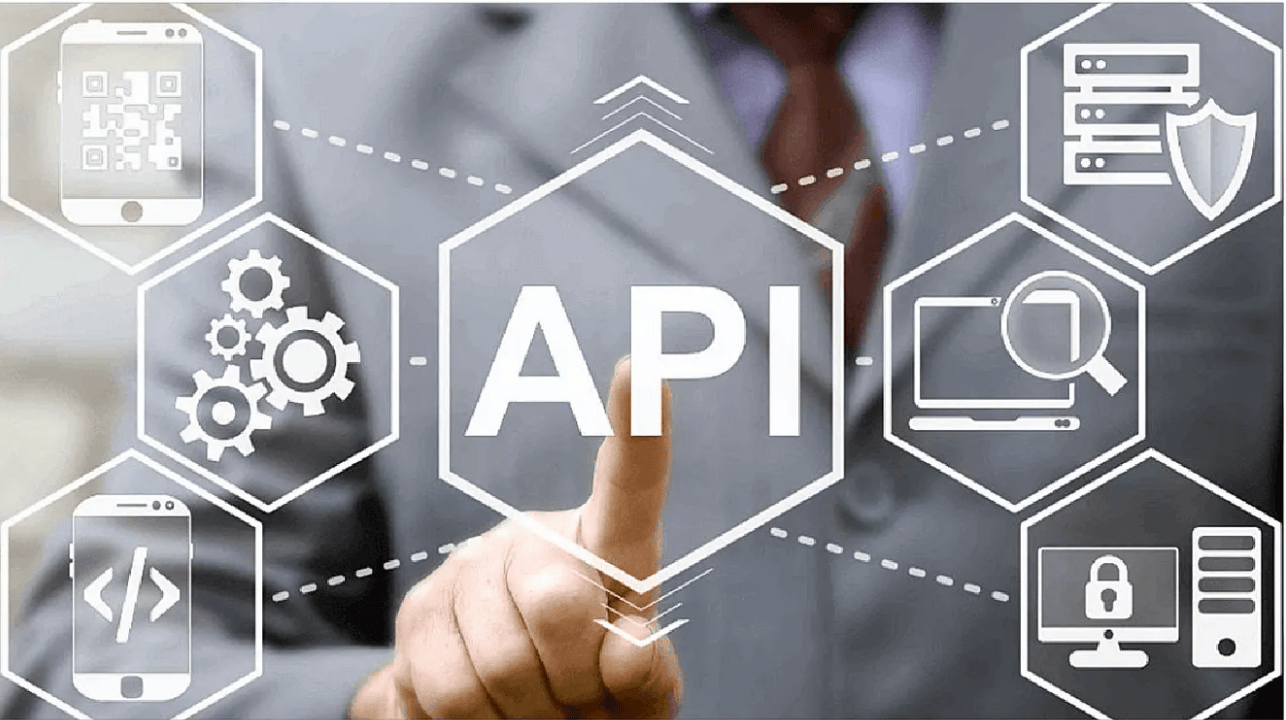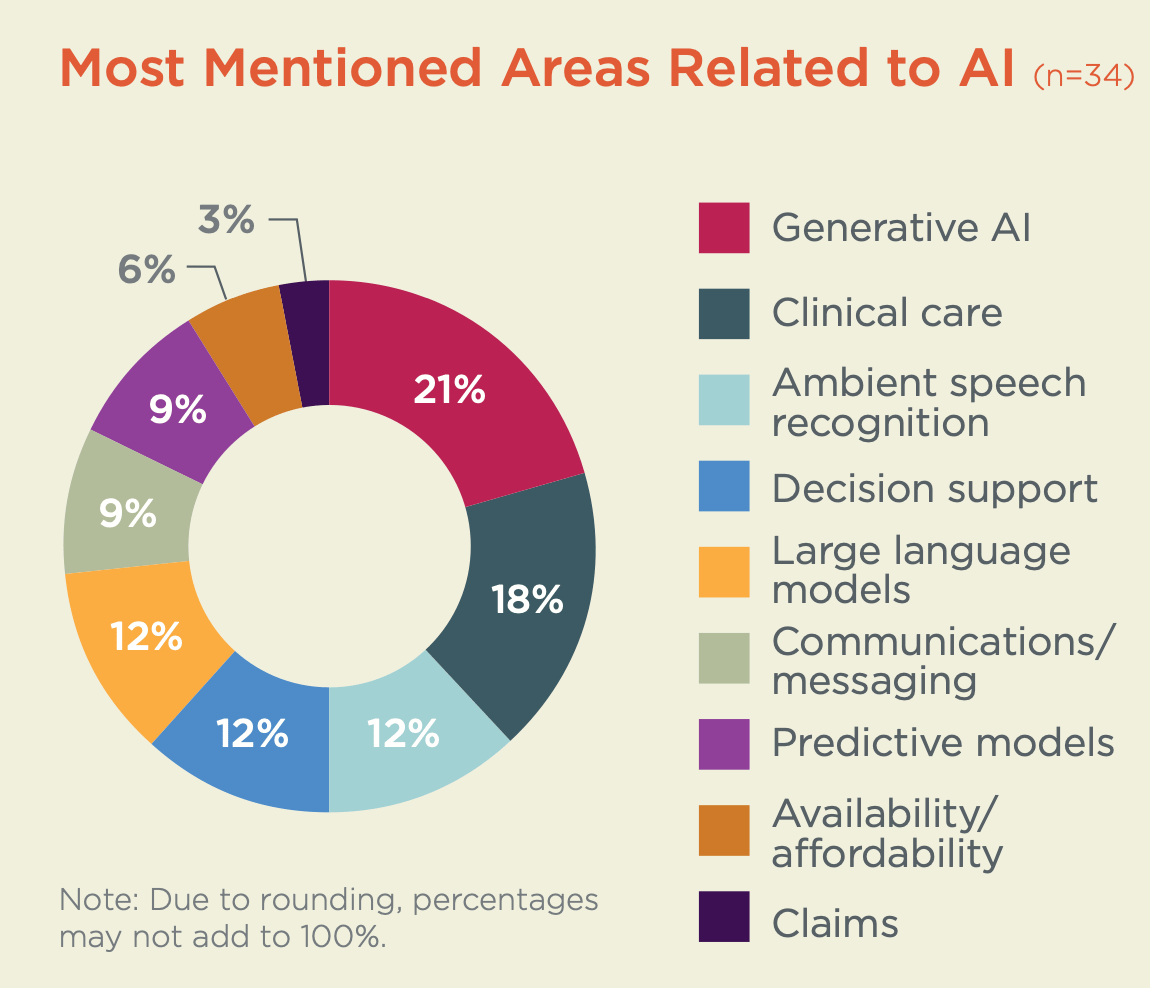- HealthTech Zen
- Posts
- ⚕️EMR API Integration
⚕️EMR API Integration
Plus: Healthcare IT engagement models, Latest Breakthroughs
Good Morning! How are you celebrating the last summer weekend? With McDonald’s bringing back its fall menu already, time is running short to round up those pending tasks on your summer to-do list!
DEEP DIVE
Complete Know How Of EMR API Integration

56% of IT decision-makers view APIs as assets that help organizations build better digital experiences and products.
EMR API integration is the key to achieve better communication between care providers, systems, and offer scalability. It acts as a bridge that connects different healthcare systems together. This allows EMR to easily exchange data between multiple systems.
5 Steps For Effective EMR API Integration
Define the Objective: Identify key goals like enhancing interoperability, reducing errors, and improving patient care.
Choose the Right Partner: Select an experienced, technically proficient healthcare tech partner adhering to interoperability standards.
Setup Integration Roadmap: Prioritize tasks that improve patient outcomes and streamline operations.
Train the Staff: Ensure staff are well-trained and comfortable with the new systems through simulated environments.
Test, Deploy, and Monitor: Implement in phases with continuous monitoring to ensure a smooth transition and system integrity.
For an in depth understanding of EMR API integration, read more here.
DEEP DIVE
Optimism For AI in Healthcare Is Far From Over
What’s Happening: AI has been recognized as the most exciting emerging technology in healthcare, according to a recent survey by the Center for Connected Medicine at UPMC, for the fourth year in a row.
AI leads the way: The "Top of Mind for Top Health Systems" survey gathered insights from 55 U.S. hospitals and health systems, with over 90% of respondents being senior executives including C-suite leaders, with a focus on information technology, operations and administration.
A notable 85% identified AI as the most exciting and transformative technology in healthcare today driven by its ability to enhance decision-making, operations, and patient care.
Here are the areas of AI that healthcare executives feel have the most potential.
The propagation of gen AI in healthcare has led to healthcare organizations increasingly leveraging this technology to try and decrease clinician burnout, bring down costs, automate administrative tasks and increase levels of patient satisfaction and engagement.
Read the full survey results here.
PULSE POINTS
Latest Breakthroughs This Week
Here’s the most important breakthroughs and advancements we spotted in the healthcare technology space this week.
Chronic Disease Management: Intermountain Health is expanding its partnership with digital health company Story Health to improve access to cardiology services. Following a successful pilot for heart failure patients that began in January 2023—resulting in 80% of medication adjustments being made remotely and a readmission rate of 14.5%—the partnership now includes a new pilot for hypertension patients, launched in April 2024, aimed at better controlling blood pressure levels.
Epic’s MyChart Bot: Epic is rapidly integrating AI into its software, with around 100 projects underway to enhance healthcare for patients and providers. Epic's MyChart patient portal is set to evolve, using AI to offer personalized health recommendations, such as reminders for flu shots or surgery preparation. MyChart will also integrate with wearable medical devices to support patients with conditions like arrhythmia and diabetes.
Augmented Reality For Parkinson’s disease: Cleveland Clinic is becoming a shareholder in Strolll, a software that uses augmented reality to assist Parkinson's disease patients. Through an exclusive agreement, Cleveland Clinic will integrate its Dual-task Augmented Reality Treatment (DART) into Strolll's platform, helping Parkinson's patients improve postural stability and gait. Patients using DART wear AR glasses to complete tasks that challenge both body and mind, with the platform measuring gait and cognitive performance.
Virtual Care: BayCare Health System is partnering with Cadence to launch a remote monitoring and virtual care program for seniors with chronic conditions like hypertension, heart failure, and diabetes. The program combines BayCare's clinical expertise with Cadence's technology to provide real-time vital sign monitoring, continuous care, and timely interventions, all coordinated with patients' primary care physicians.
AI in Oncology: MultiCare Health System is partnering with Azra AI to expedite cancer treatment. By implementing Azra's oncology platform, MultiCare aims to quickly extract key information from pathology and radiology reports, allowing providers to make faster, informed decisions. The platform will help automate oncology tasks, improving patient care and operational efficiency.
EXPERT SPOTLIGHT
Wali Khan: Leading By Example

This week, HealthTech Zen got in touch with Wali Khan, a healthcare technology leader with over two decades of experience enabling business capabilities through the development of innovative software products and solutions.
How do you foster a culture of innovation within your technology teams?
To foster a culture of innovation within my technology teams, I focus on encouraging open communication, creating an environment where team members feel comfortable sharing ideas and feedback. I support continuous learning by providing access to training and development opportunities to stay current with industry trends. Empowering my team members to take ownership and make decisions, while encouraging experimentation and learning from failures, is also crucial.
Finally, I lead by example by staying involved in industry trends and modeling innovative behavior. This approach helps create an environment where innovation can thrive, and my technology teams are inspired to explore new possibilities.
What are the key skills and qualities you believe are essential for a successful CTO in the healthcare tech sector?
For a successful CTO in the healthcare tech sector, essential skills and qualities include deep technical expertise in healthcare technologies and emerging innovations. A strong strategic vision is necessary to align technology strategy with organizational goals. Leadership skills are crucial for inspiring and managing teams and driving innovation. Understanding healthcare regulations and compliance is important, as is proficiency in data analytics to drive decision-making and improve outcomes.
DECODER
What are Healthcare IT engagement models?
An IT engagement model is a framework that determines how a vendor offers IT services to clients. It basically shapes the relationship between a client and IT services provider.
Here are the 5 commonly used engagement models in healthcare IT
Fixed-price model
Time and material model
IT staff augmentation
Dedicated team
Managed services
Read in detail about each of these Healthcare IT models here.
